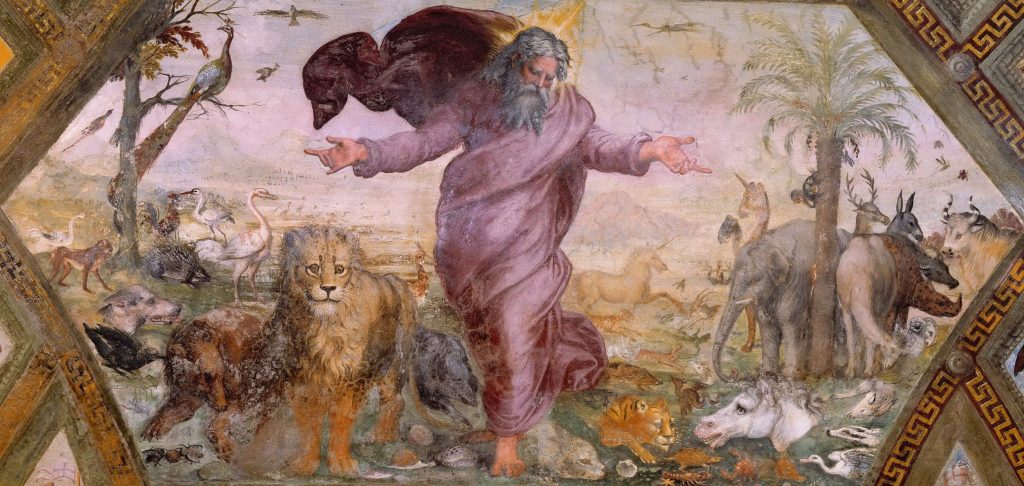This evening we will be reading through Genesis 1:6-25. When we read through these Days of Creation in light of other ancient mythologies, Genesis consistently emphasizes the absolute sovereignty and pre-existence of the one God. For example, in Day Three, God says “Let the earth put forth vegetation.” In other words, the earth’s generative and creative power comes from God. In Greek mythology, the Earth (Gaia) is one of the primordial deities and the source of all life. Here, the earth is simply a mediating element of God’s power and has no independent divine nature. In Day Four, God makes the sun, the moon, and the stars. Throughout the ancient world, the sun god was usually a chief deity. In Egypt, Ra was the primary creating deity that ruled the universe. And in the contemporary world of Genesis, the study of Astrology was based upon the divine attributes of the stars. God’s creation of the heavenly bodies repudiates their divinity.
In Day Five, God creates the “great sea monster.” The Hebrew is “tannin,” which is translated as “serpent” elsewhere in the Hebrew Scriptures. In the Babylonian creation story (Enuma Elish), the primordial sea-goddess Tiamat is portrayed as a great sea serpent. In Canaanite mythology, Tannin is a primordial deity that is defeated by the Lord (Ba’al) in bringing order out of chaos and in establishing his dominance. Once more, God’s creation of tannin and Genesis’s statement that tannin is simply one of the living creatures within the sea, strips not only tannin of its divinity, but confesses that God (unlike Ba’al) is the true source of all things. The Creation Story is the definitive statement of Jewish (and Christian) monotheism. As deutero-Isaiah writes, “’I am the first and I am the last; there is no god but me.’” Isa. 44:6.
When we step back and look at the totality of the Creation in vv.6-25, what we see is that God is intimately involved in nature. God creates the sea creatures, and the birds of the air, and the beasts of the field, and God blesses them. Creation, not only us, receives the blessing of God. The sense in Genesis is not that God simply brings about Creation and steps back, but remains intimately involved with Creation. Psalm 104 gives us a great example of God’s continued interaction with what he has brought about.
So shall my word be that goes forth from my mouth;
Isaiah 55:11
it shall not return to me empty,
but it shall accomplish that which I purpose,
and prosper in the thing for which I sent it.


Pingback: Matthew’s Infancy Narrative – The Magi – Ancient Anglican